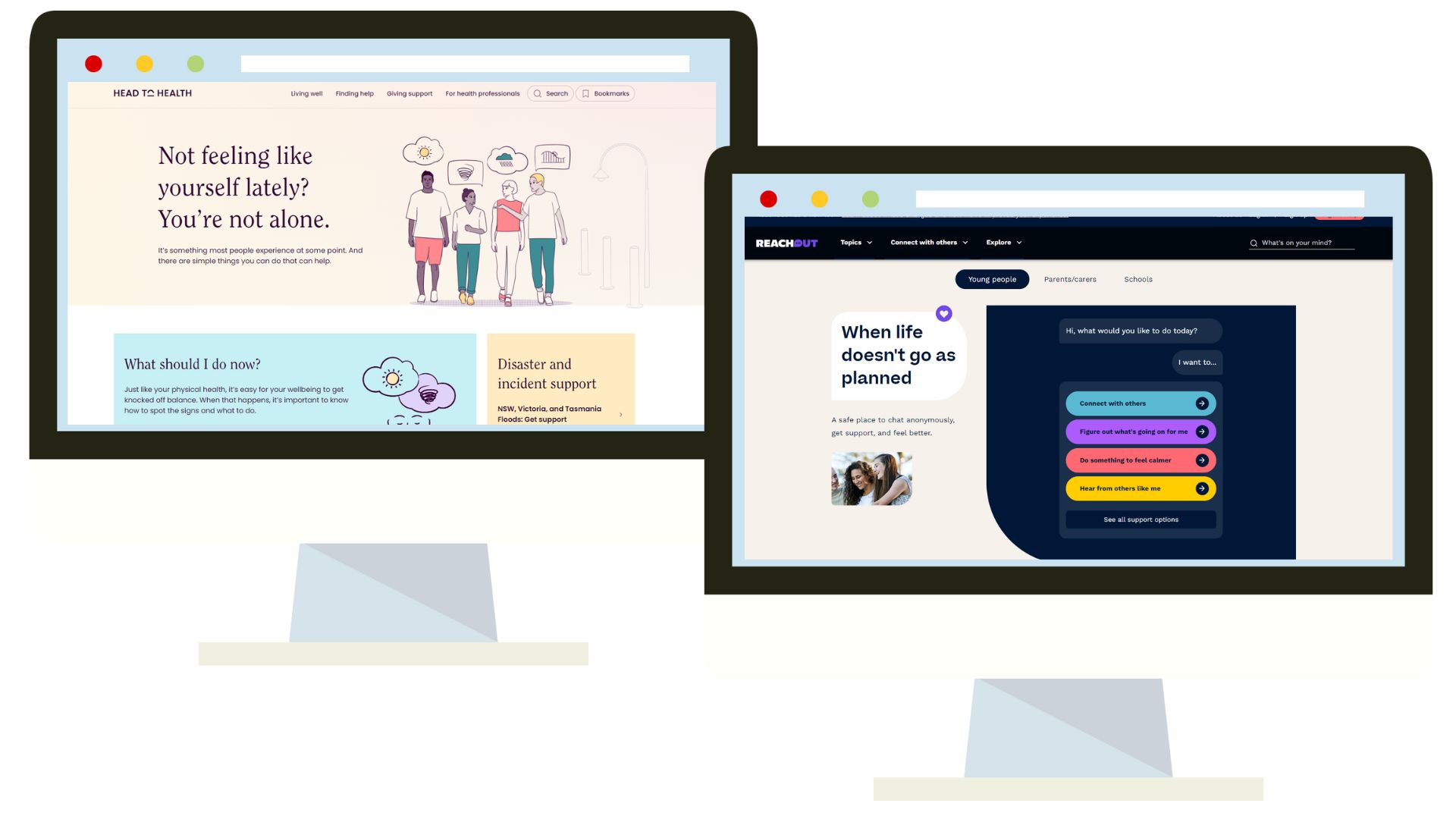
The range of mental health supports accessible through your phone, laptop and computer is actually quite mindboggling. Being familiar with some of the better ones is useful if you are seeking to use some of these digital tools to build a better life. In this post I mention a couple which have undergone recent transformations and are great starting points for those dipping their toes in the world of online mental health resources. Reading time ~ 2 min, 32 seconds.
Australia has a fantastic collection of online mental health resources. They range from educational articles through to full treatment programs for different mental illnesses.
One of the real challenges (for mental health professionals such as myself) is making people aware of them and engage with them.
I understand the reluctance of many to access online resources for mental health concerns. When we are distressed, it is often people we crave a connection with, not an app or a program. I want to speak to or see a human being, not type into a text box or engage with an avatar.
This reluctance however acts as a barrier to the discovery of apps, programs and resources that can provide the psychological tools necessary to find a space from one’s suffering. And in that space is often the opportunity to create or enhance existing connections in one’s life. Online mental health resources can equip us with knowledge and skills that help us navigate difficult thoughts, feelings and circumstances. They aren’t the whole solution, but they can get us moving forwards when stuck. I’ve talked about this a little in a previous post on online CBT programs. CBT is a set of psychological tools that can be used to better regulate difficult emotions and make important behaviour changes. CBT is very well suited to learning online. Once a person has those skills, they can apply them to building a better-quality life.
But the idea that digital or online mental health resources are just focused on providing information or teaching skills is incorrect. Many include connection as a core component. Whether it is the discussion forums on Beyond Blue, the crisis chat on Lifeline or the teletherapy on Mindspot, modern digital services can activate connection in new ways. Yes, the first step is sitting down at your computer (not walking into a therapy office), but the computer is then a vehicle to connect with therapists, peers, like-minded individuals and trained helpers.

Anyway, with my sales routine out of the way, I should get to the original purpose of this post. To share a couple of online mental health resources that I was recently reminded of in an excellent newsletter I get from eMHPrac, a leader in tracking Australian online mental health resources.
The first is Head to Health. Launched in 2017, Head to Health is a government built portal site, connecting you with 500+ digital resources to support your wellbeing and mental health. Browse or search (on the basis of what you need help with) and Head to Health will suggest websites, apps, services and articles that match your needs. They have a new Beta site that is reorganising their resources and making them easier to navigate. Head to Health is also expanding into telephone support (1800 595 212) and physical centres that can help you find what you need. Think of Head to Health (the site, centres and phone line) like a tour guide, someone to help you navigate a complex and unknown place.
The second is ReachOut. ReachOut is “a safe place where young people (under 25) can openly express themselves, get a deeper understanding and perspective on what’s happening in their lives, connect with people who will provide judgement-free support, and build the resilience to manage their challenges now and in the future.” You can, via their site access peer chat, discussion forums, personalised support suggestions, reviews of helpful apps/tools, articles and a regular newsletter. ReachOut have been in the game a long time and have refined the supports they provide young people, with a focus on mental health but also covering identity, wellbeing, relationships, study, work, money, bullying and more. They just underwent a site redesign and I think it has made their resources easier to explore.
If you want more online resources, this older blog post (which I will update soon) provides further links and options, including linking to the wide range of phone and chat services that are now available.
Can’t find what you need or confused by the options. Email me (gareth.furber@flinders.edu.au) and I will try to point you in the right direction.

